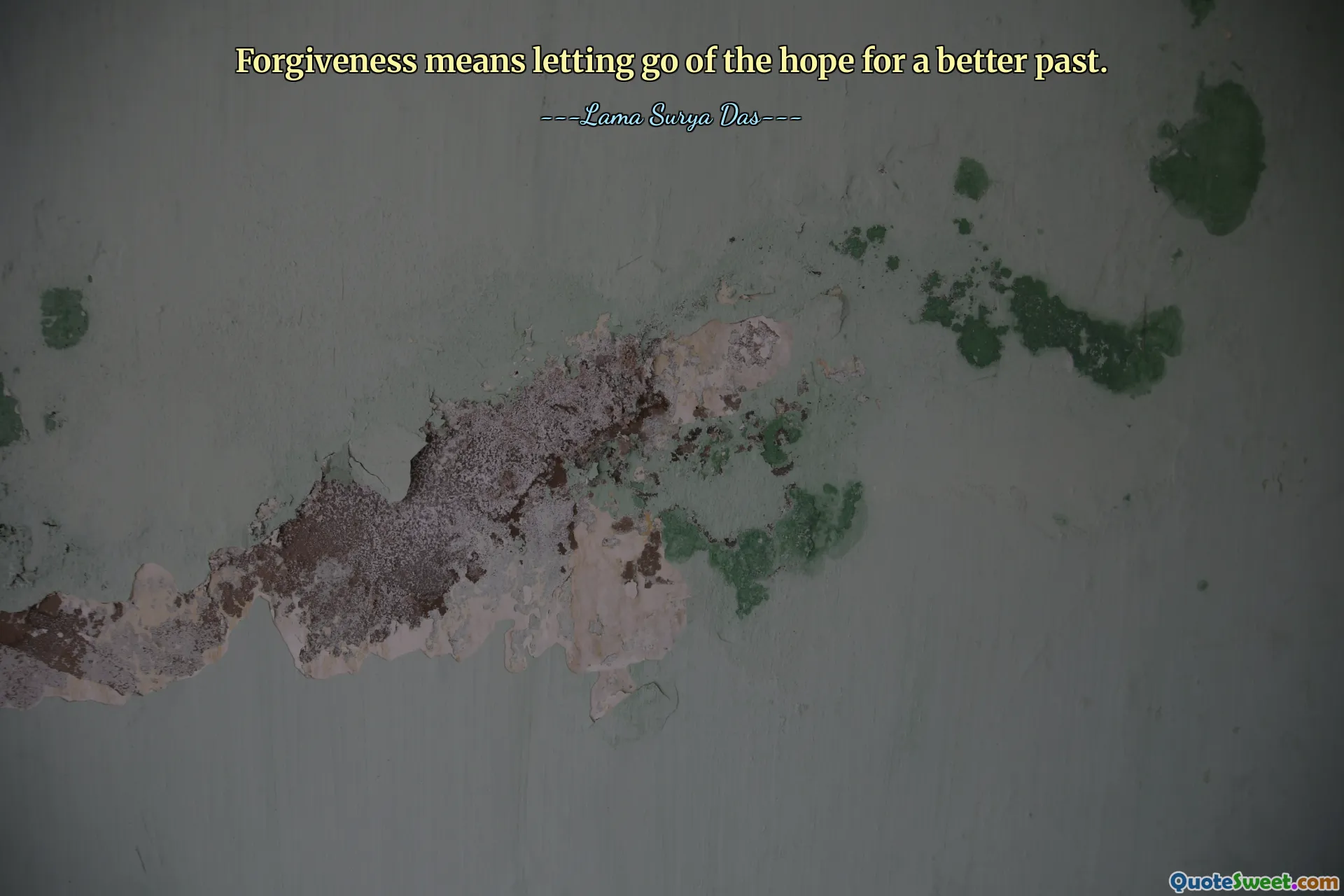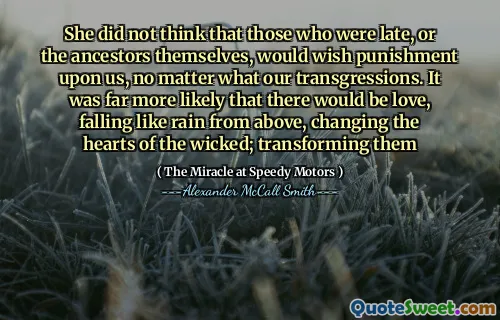
Forgiveness means letting go of the hope for a better past.
The essence of this quote resonates profoundly with the idea that forgiveness is not about changing what has already occurred but about changing how we relate to the past within ourselves. We often carry the burden of pain, resentment, or regret, holding onto a desire that the past had been different, that those who wronged us had acted otherwise. This hope for a better past is, by nature, a form of denial of reality, a refusal to accept the immutable truth of what actually happened.
Forgiveness, as portrayed here, involves a conscious decision to relinquish that futile hope. It is a form of liberation—not for those who may have caused harm but foremost for ourselves. By letting go of the hope for a different past, we stop reliving hurtful memories and freeing ourselves from emotional entrapment. This action opens space for healing, peace, and growth.
Moreover, this quote emphasizes a crucial nuance: forgiveness is not synonymous with forgetting or excusing wrongdoing. Instead, it acknowledges the reality of past pain while choosing to release the hold that it has over our present emotional state. By doing so, we empower ourselves to move forward without the corrosive weight of bitterness.
In the journey of human experience, the past often serves as a kind of mental prison, and forgiveness is the key that unlocks the door. It is an act of courage and strength, enabling us to find serenity despite unfavourable circumstances before. Thus, forgiveness becomes less about other people and more about reclaiming our own peace and freedom.









